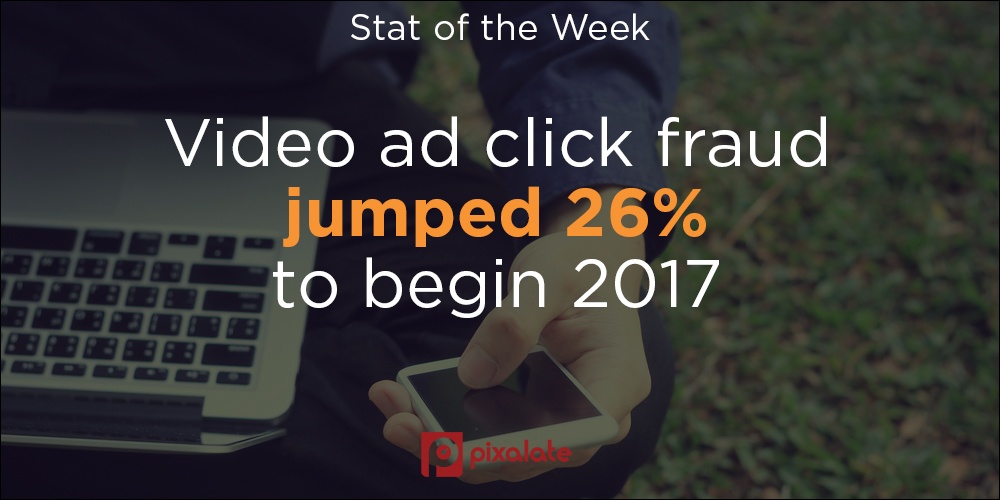
This week's review of ad fraud and quality in the digital advertising space.
Click the Stat of the Week for more information.

According to Adweek, Apple's next version of Safari will automatically block desktop ad tracking and autoplay video ads. This echoes what Google is planning with its Chrome browser. It's all part of a larger effort to improve quality in the digital media marketplace.

Per Digiday, domain spoofing has become a hot topic of late as marketers focus on fraud and brand safety. But it "remains an unsolved issue in programmatic advertising." Marketers will continue solving for domain spoofing as they strive for a high-quality programmatic marketplace.

Snap this week acquired location data firm Placed. According to MediaPost, "The acquisition is not a surprise — the Snapchat parent had to do something. Last month, analysts blamed Snap’s less-than-stellar debut earnings report on its ad-tracking and measurement shortcomings." As marketers demand more transparency and quality, media companies are starting to deliver.

In an op-ed on AdExchanger, Spencer Scott, head of media platforms at PCH/Media, says he "see[s] a turning of the tide in ad quality," with more publishers realizing that quality ads (and audiences) are vital, especially as advertisers set new expectations.

In a roundup of its Hot Topic event in London this week, Digiday wrote of the disconnect between buyers and publishers. However, the article noted that they do share common ground. "Buyers, like publishers, also want more transparency of the entire digital ad-trading process," wrote Digiday. The article also touches on why the right partnerships are vital in programmatic, as they breed honesty and, ultimately, increase transparency.
Sign up for our blog to stay updated with new stats, trends, and analysis on digital ad fraud.
*By entering your email address and clicking Subscribe, you are agreeing to our Terms of Use and Privacy Policy.
These Stories on Weekly Recaps
*By entering your email address and clicking Subscribe, you are agreeing to our Terms of Use and Privacy Policy.

Disclaimer: The content of this page reflects Pixalate’s opinions with respect to the factors that Pixalate believes can be useful to the digital media industry. Any proprietary data shared is grounded in Pixalate’s proprietary technology and analytics, which Pixalate is continuously evaluating and updating. Any references to outside sources should not be construed as endorsements. Pixalate’s opinions are just that - opinion, not facts or guarantees.
Per the MRC, “'Fraud' is not intended to represent fraud as defined in various laws, statutes and ordinances or as conventionally used in U.S. Court or other legal proceedings, but rather a custom definition strictly for advertising measurement purposes. Also per the MRC, “‘Invalid Traffic’ is defined generally as traffic that does not meet certain ad serving quality or completeness criteria, or otherwise does not represent legitimate ad traffic that should be included in measurement counts. Among the reasons why ad traffic may be deemed invalid is it is a result of non-human traffic (spiders, bots, etc.), or activity designed to produce fraudulent traffic.”

